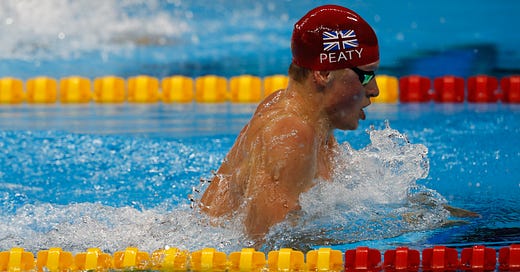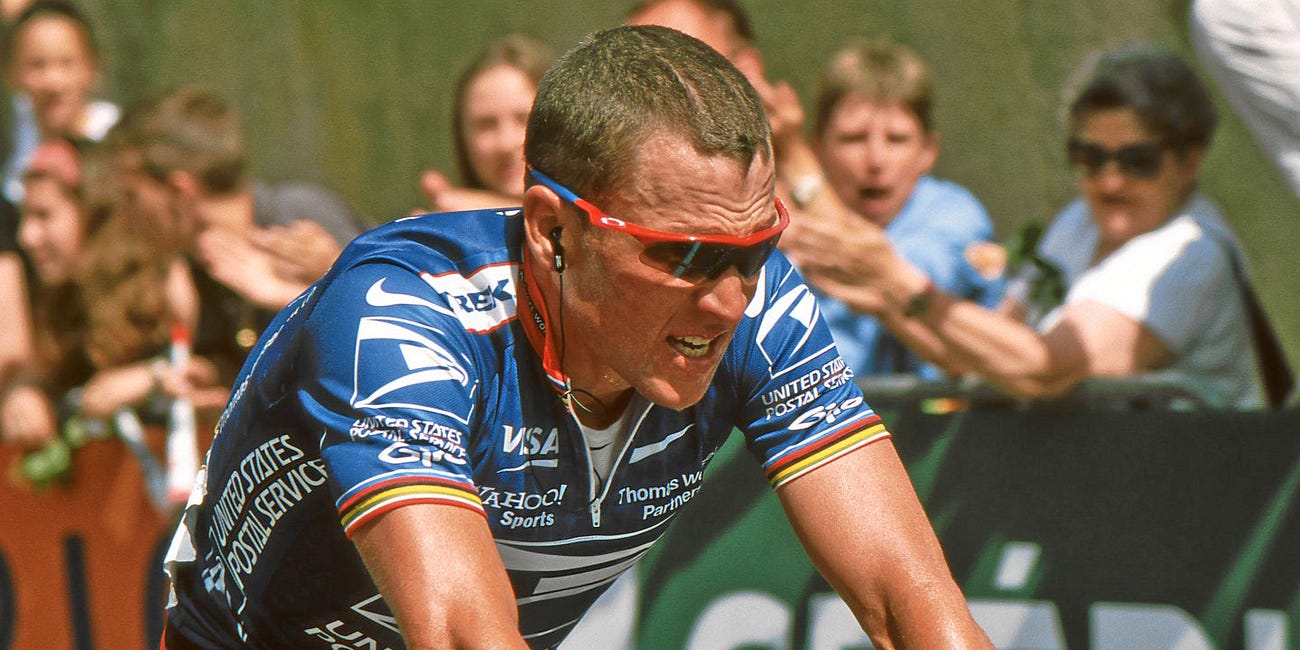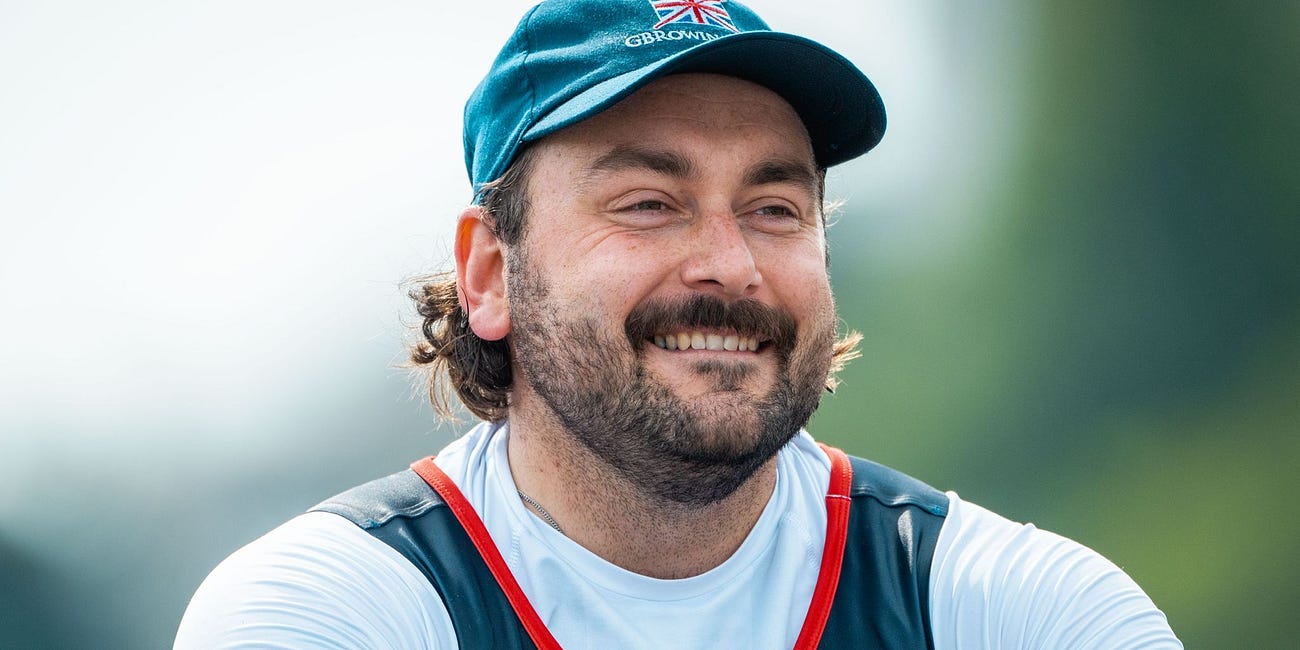Top ten sport psychology moments of 2024
What were the standout feats of focus, resilience and self-awareness - to name just a few traits - from the last 12 months?
It’s been a year of stunning sporting achievements, ranging from Olympian comebacks to coming-of-age success stories on the football pitch. Mind Room columnist Jonathan Harding joins me to run through some of the standout moments from the last 12 months, from tales of steely-eyed focus to supreme self-awareness.
Jemima Montag
Jemima Montag's interview after winning bronze in the women's 20km walk in Paris was a great example of what a healthy mindset in high-performance sport can look like.
"It's a careful balance of wanting that medal but not needing it," Montag said afterwards. "It's really a nuanced difference, so not needing it for your own self-worth or feeling that people love you but wanting it and saying, 'Yeah, I'm willing to give this a crack and be tough.' And if it doesn't happen the sun will rise tomorrow."
Really loved the vulnerability that an elite athlete was willing to show right after her moment of achievement.
Adam Peaty
On a similar note, British swimmer Adam Peaty's revelation after winning silver felt powerful and like the words of a man who had worked hard to look after his mind.
"I am not crying because I have come second. I am crying because of how much it took to get here," Peaty said afterwards. "In my heart I have won. These are happy tears. I can't have that relentless pursuit every single day without a sacrifice of some sort and that sacrifice can come in different ways - time, energy, relationships."
The process that got Peaty - or any other high-performance athlete for that matter - back into the pool is a reminder of the cost, as well as how success is not one-dimensional.
Sport and the 'Dark Triad': how does personality actually affect performance?
From the brilliance of Simone Biles to the stamina of Alex Yee and the incredible longevity of Mijain Lopez, the Olympics in Paris delivered many memorable moments. One of the most startling moments came, for those watching on television, in between the events, though.
Casey Kaufhold
With the help of a sports psychologist, American archer Casey Kaufhold rediscovered a balance independent of results, and helped re-establish her non-athletic identity.
“I sometimes struggle if I don’t do well at events, it feels really heavy because this is all I have – but it’s important to have that outlet to express your worries, emotions, thoughts and feelings because it’s tough to keep that bottled up and stay functioning," Kaufhold said.
“That’s been a huge change in my routine over the last year [and] it’s definitely changed my archery, I feel like I handle pressure better now. Just small things that you sometimes overlook here and there can be so important and my sports psychologist really helped me realise that.”
The psychologist also helped Kaufhold remember she is not just an archer, but also a daughter, a sister, a friend and a girlfriend. She won bronze in the mixed team in Paris, but more importantly came away knowing she is much more than just a bronze medal.
The Mind Room is a reader-supported publication. To receive new posts and support the newsletter, consider becoming a free or paid subscriber.
'I had an opportunity to redefine what I do': the para rower and architect designing a route to the Paralympics and accessible sports facilities
“I remember just being on the wards during chemotherapy, off my face on drugs, in so much pain and just sobbing uncontrollably at this documentary: that was when I was like, ‘Okay, we're doing this’”
George Kittle
The San Francisco 49ers have come close to winning the Super Bowl in recent years, and although they have fallen short, star players in their team have emerged.
As revealed in the Netflix series, 'Receiver', 49ers tight end George Kittle spoke about how meditation has really helped him as a player. Clips of him doing this with his tight-end group were all around social media earlier this year, but the method he has is so simple and so effective in terms of getting his mind right for top-level sport.
“My meditation that I do prior to games…it’s like find a quiet spot on the bench, the crowd’s already there, we’re warming up and I take like three minutes of just breathing.
“I do some visualization work and then I do some affirmations, I talk to myself; ‘Breath in confidence, exhale fear, breath in belief, exhale doubt, breath in strength, exhale weakness," Kittle said.
Ruben Selles
Former Reading head coach Ruben Selles revealed early in the year that he uses a sports psychologist for both himself and his family because of how ugly things can get when you aren't winning.
It felt like an admission of how important it is for coaches to have extra support (see Cody Royle's second set of eyes theory) but also how the job impacts everyone connected to the field.
“For Anna, for my wife, and for me, it was critical that we keep an eye on the kids and we bring them the support that they need," Selles said. “I had Jen (Jennifer Lace - Head of Psychology at the LMA) visiting me a couple of months ago to see if everything was going well with the kids and family. You cannot do things alone in the world of football and everyone needs a good team around - especially managers, we need the teams around us to take care of a lot of things and mental health is very important.”
The exciting part of this approach from Selles is the psychological safety it potentially offers everyone else in the organisation if the head coach is investing so heavily in this space. Here's to more of this!
Andy Murray
Making the quarter-finals of a major tournament might not seem significant, but as final flings go, Andy Murray’s Olympics campaign might be one of the most symbolic sporting swansongs of recent memory.
At the end of a career built on comebacks, Murray - who played in the Paris 2024 doubles tournament alongside Dan Evans - reserved some of his most outlandish feats of escapology for the last three matches of his career.
In the first round, the pair saved five straight match points, in a barely believable tussle with Japan's Taro Daniel and Kei Nishikori. In the second round, they saved two more.
Why am I picking this as one of my sport psychology moments of the year? Because, put simply, it encapsulates the resilience stamped all over Murray’s career, both on and off-court.
Alvaro Morata
Euro 2024 was Spain’s tournament. The winners lit up a competition that - at times - felt like the kind of bloated, staid affair you’re always risking with a 24-team tournament. Players like Lamine Yamal and Nico Williams hogged the headlines, but it was Alvaro Morata’s captaincy that caught my eye.
Morata has been openly effusive about the benefits of working with a sport psychologist, crediting his partnership with psych and former Spanish assistant coach Joaquin Valdes with helping him recover from the trauma of his close friend’s death and wife’s postpartum depression, on top of the deplorable social media abuse which has followed him throughout his career.
Captaincy is sometimes (quite rightly, in this writer’s eyes) seen as a tokenistic symbol of leadership, but in this case, the decision to entrust Morata with the armband was a bold decision with real thought behind it. As Spain coach Luis de la Funete said:
“He can appear fragile because of the things he’s said but he’s a tough man…He is strong because he’s had to overcome things others would not have been able to. There’s a contradiction in talking about his ‘fragility’ because you need energy and strength to face that. Someone who is capable of overcoming extreme situations, facing breaking points – one day maybe he’ll explain what he’s been through, that’s up to him – shows great strength.”
Alvaro Morata and Joaquin Valdes: the player-psychologist partnership key to Spain's World Cup hopes
It's rare to hear an elite manager talk openly about working with a psychologist. It's rarer still for a national team boss to make a ‘psych’ the subject of a press conference prior to his side's first major tournament semi-final in nine years.
The Mind Room is a reader-supported publication. To receive new posts and support the newsletter, consider becoming a free or paid subscriber.
Joe Mazzulla
A tip of the hat to Chris Shambrook for this nomination, which definitely merits a place on the list. In an age where sports coverage is increasingly dominated by clickbait criticism, it’s refreshing to see a coach explain how he’s helping to insulate players from the maelstrom of noise that surrounds most elite teams.
You’ll hear a lot of managers talk about the redundancy of punditry, ‘bubbles’ and ‘siege mentality’, but very few go to the trouble of articulating how they’re educating athletes and forming a protective layer around their players. This clip of Boston Celtic’s Head Coach Joe Mazzulla’s interview with a pack of local journalists does just that.
Scottie Scheffler
A shout out to Scottie Scheffler for his candour in revealing that religous fervour was key to his Masters success. The world number one, who took possession of the fabled 'Green Jacket' after his victory at Augusta, said that his belief in Christianity provides reassurance during his time on the golf course.
“I believe that today’s plans were already laid out many years ago, and I could do nothing to mess them up,” Scheffler explained, reflecting on his Masters victory.
“That’s a pretty special feeling to know that I’m secure forever and it doesn’t matter if I win this tournament or lose this tournament.”
Whilst some might scoff at Scheffler's pronouncements, his devotion allows the American to focus on 'controlling the controllables', a subject Dinamo Zagreb psychologist Boris Balent unpicked in a Mind Room interview about his time with the Croatian football team.
Naomi Osaka
Osaka’s return from a 16-month absence from competition, during which the Japanese tennis player gave birth to her daughter, Shai, has seen its fair share of on-court ups and downs.
But whilst her performances have varied considerably, her willingness to open up on the psychology of returning from such a long layoff has been unwavering. There are some supremely insightful quotes sprinkled across her first year back on our tour, but this snippet - taken from after her first post-pregnancy grand slam appearance - is my pick of the bunch:
“I have to tell myself: ‘Hey, six months ago you were pregnant,’ stuff like that,” Osaka said. “Of course, there’s a voice in my head that is: ‘Who are you to think you can come back and immediately start winning matches?’ I don’t know. I kind of always expect myself to stand a chance anyway. So I guess just being nicer to myself is like a key thing that I learned in my time away.”
The Mind Room is a reader-supported publication. To receive new posts and support the newsletter, consider becoming a free or paid subscriber.
Questions?
If you have any queries about the newsletter, get in touch by emailing mindroomenquiries@gmail.com.
Previous articles
New subscriber or looking for access to the back catalogue of Mind Room articles? You can access all of the stories, covering everything from AC Milan’s neuroscience lab to the way English rugby teams are embracing ‘shared mental models’, by becoming a Mind Room Member and gaining access to the four sections of the site:
Thanks again for reading The Mind Room!






